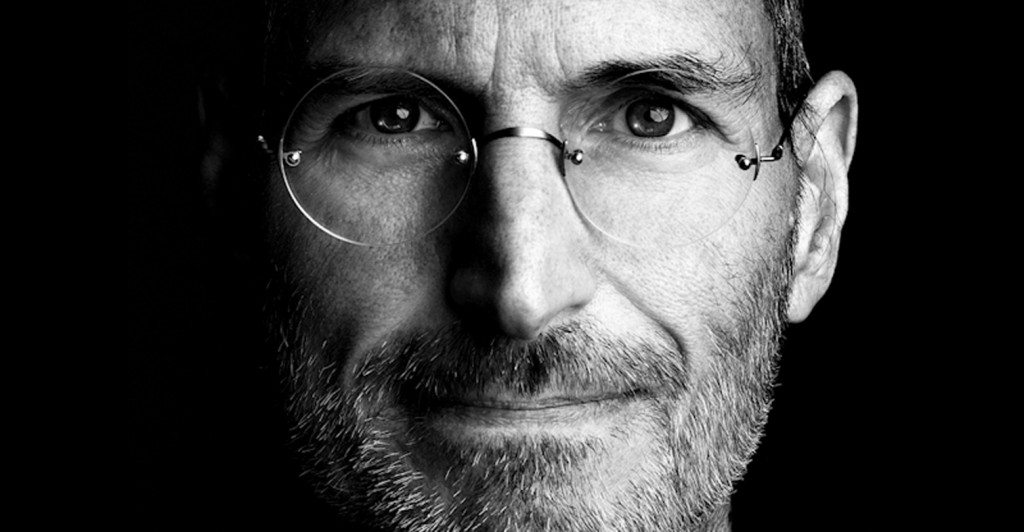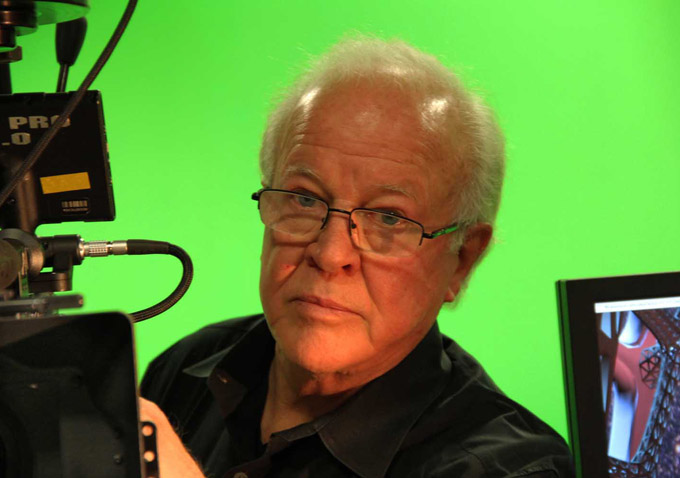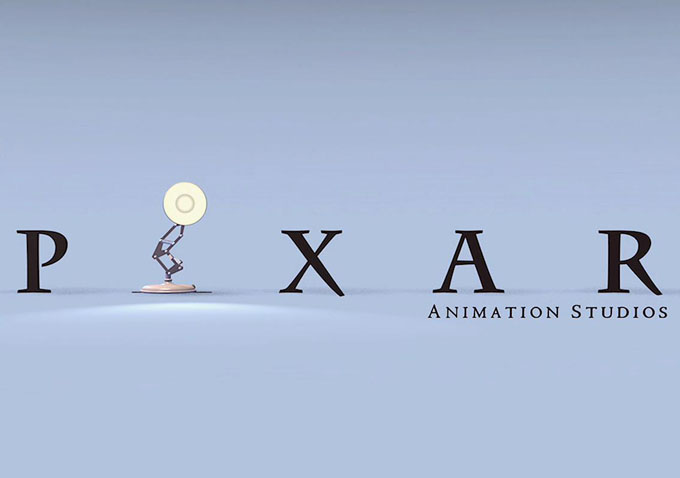By providing your information, you agree to our Terms of Use and our Privacy Policy. We use vendors that may also process your information to help provide our services. This site is protected by reCAPTCHA Enterprise and the Google Privacy Policy and Terms of Service apply.
How Silicon Valley Relates to the Film Industry
 READ MORE: Alex Gibney Doesn’t Pander to Steve Jobs in His Unsparing New Doc
READ MORE: Alex Gibney Doesn’t Pander to Steve Jobs in His Unsparing New Doc
“The film is about to begin, please turn off your iPhones and Apple watches.” Where else but San Francisco might one hear those words?
Technology dominates the San Francisco International Film Festival, which opens April 23 with “Steve Jobs: The Man in the Machine.” In 58 years, Alex Gibney’s portrait of the Apple founder is the first documentary to open the festival.
The biographical film, which premiered at SXSW, now goes to the belly of the beast: In San Francisco alone, more than 50,000 people work in the tech sector. (To get a sense of the economic effect of that number, try finding an affordable apartment there.)
“In San Francisco and the Bay Area, we live and breathe science and technology every day. No figure looms larger than Steve Jobs in setting the course for not just the tech sector here, but the whole innovation culture of the region,” said Noah Cowan, now in his second year as SFIFF director. “Alex Gibney’s film not only looks at Jobs himself, but looks at him in light of the inspirational quality that all of these new innovative technologies have brought to the world, and some of the difficulties as well.”
The Jobs doc will not be alone in SFIFF’s focus on tech in its mix of 100 features and 181 films. Also on the bill is “Deep Web,” Alex Winter’s documentary on the Silk Road internet crypto-currency black market, whose operator, Dread Pirate Roberts (Ross William Ulbricht), was arrested in 2013 at Glen Park Library in San Francisco. (SF-based Wired editor Andy Greenberg consulted on the film.) The VETERAN special effects pioneer and virtual reality tech proponent Douglas Trumbull will give the festival’s State of Cinema talk. And VR reporter Nonny de la Pena will speak on technology and journalism.
Granted, technology isn’t the whole story here. SFIFF promises tributes to Richard Gere and Guillermo del Toro, and a screening of Stanley Nelson’s Black Panther doc that could draw masses of radical alumni from across the bay in Oakland.
Still, the Jobs doc is leading the way — if not to a homecoming, to an arranged meeting. “These companies run or founded by utopian individuals – what does it mean when they start running up against the reality of being big businesses?” said Cowan. “Jobs is a fascinating harbinger of some of the internal debates that are taking place within companies that have now matched the size of Apple. A lot of young entrepreneurs are actually thinking through those challenges and trying to figure out a way to navigate success in a different way.”
Is a venerable film festival driving a business debate in a much younger industry? “Jobs embodies this utopian entrepreneurial quality in American culture that is at the core of how this country identifies its own soul,” noted Cowan, a Canadian. “Warts and all, he’s still that guy.”
The Shadow of Steve
 In a region where technology is as central as entertainment is to Los Angeles, SFIFF probably doesn’t need to worry about filling its screenings. But will Apple employees be there for the film that “very disappointed” Apple exec Eddy Cue tweet-dissed as “inaccurate and mean-spirited” at SXSW?
In a region where technology is as central as entertainment is to Los Angeles, SFIFF probably doesn’t need to worry about filling its screenings. But will Apple employees be there for the film that “very disappointed” Apple exec Eddy Cue tweet-dissed as “inaccurate and mean-spirited” at SXSW?
Cowan repeated what an unnamed tech source told him: “Noah, you’ll have no problem getting the tech sector out. It just depends on whether they’ll be wearing trench-coats or not.” Is that the new business-casual?
READ MORE: How Can the Nation’s Oldest Film Festival Survive?
Word in Austin, where the Jobs doc premiered, was that the tech crowd skipped films in favor of the Interactive Conference and its many parties, but Alex Gibney said he was told that Apple employees packed into the film’s premiere.
“It’s not a slam,” said Gibney, who hopes for greater numbers from the Apple ranks when the Jobs bio-doc opens SFIFF. “He was the one who told us to take it as writ that Apple represented a higher ideal. The film takes a look at that to see whether that’s true.”
If the film is about the paradox of Steve Jobs, the director said, it’s also about the paradox of Silicon Valley. “We’re not here to build a winner-take-all society, where a handful of entrepreneurs win and everybody else loses,” he said. “Silicon Valley owes itself a moment to look in the mirror, and the rest of us owe ourselves a look at the culture that’s coming from there – what’s great about it, and what’s problematic.”
And Silicon Valley is more than a subject for films and a potential public at SFIFF. The tech sector, where philanthropy has been notoriously slow to expand, is viewed by Bay Area cultural institutions as a realm of untapped donors. Given Apple’s reaction to the Gibney doc so far, SFIFF won’t be holding its breath for a sponsorship deal from that firm.
Courting the Tech Sector
 Partnering with the broader tech sector is a work in progress, but work is progressing, Cowan says.
Partnering with the broader tech sector is a work in progress, but work is progressing, Cowan says.
“We’ve added a bunch of new board members, many of whom are intimately connected to the tech business community,” said Cowan, who noted that tech CEOs, who rarely have time to sit on cultural boards, tend to try to completely reorganize the institutions that they support.
At least one guest at SFIFF will be there to enlist Silicon Valley’s technology and capital to reorganize cinema as we know it: Douglas Trumbull, whose special effects credits range from “2001: A Space Odyssey” to “Blade Runner” and “The Tree of Life.” Most recently, Trumbull has been refining virtual reality technology from his studio in western Massachusetts. Trumbull expects he’ll fit right in at the festival. “I’m very focused on Silicon Valley and tech sector, because I think it’s more open to disruptive change than anything in Hollywood,” he said.
“The movie business is so totally screwed up that I just don’t have the energy to invest three or four years in a feature film,” is a much-quoted Trumbull opinion.
Trumbull, 73, offered a capsule of what he’ll be telling tech-savvy audiences in San Francisco. “The medium of movies at 24 frames a second is no longer adequate to carry the spectacle of what the studios are willing to pay for,” he said. “One of the bottlenecks we have right now is that it’s not that they’re unwilling to spend $100,000,000 or $200,000,000 or $300,000,000 on a movie – it’s that the movie itself is being bottlenecked by poor presentation in theaters, on screens that are too small, not bright enough, not big enough, not spectacular enough. And so the production value that they’re paying for is not getting to the eyes and ears of the audience, because it’s being throttled down by the medium itself.”
Silicon Valley firms haven’t engaged with cinema because movies haven’t offered a technological challenge like immersive VR, Trumbull argues. “Because they’re so sophisticated technologically, they probably look at movies as a technology and a process of the past,” he said. “Movies on screens – big deal – they’ve seen it all their lives, it’s been around for a hundred years.”
Trumbull admits that tech investors have been a hard group to crack. His own research and his new demonstration film, UFOTOG, are self-financed – so far. And he’ll show film clips at his SFIFF talk, because there’s no available technology to present the actual film at the festival. “Wait a few months,” he said.
A Future for Film and Tech

In the meantime, Cowan has another tech film up his sleeve. SFIFF closes with the stylish “Experimenter” by Michael Almereyda, which revisits the obedience studies of Stanley Milgram from the 1960’s in which subjects obey commands to administer what they think are painful electric shocks.
“It’s a film about the limits we like to impose on scientific inquiry, and when that runs up against extending the base of human knowledge. Where we go with that is a really thorny question,” said Cowan. “It so clearly tracks to now, in that it’s really about the limits of data collection, and how we’re going to think about the ethics of data collection as we move forward as a society. It may even be more relevant than the Jobs film to the Bay Area and what we’re debating out here.”
Do all these debates lead back to Steve Jobs? At a time when the consensus is that post-Jobs Silicon Valley is driven by Wall Street to maximize profit above all else — as Alex Gibney’s doc suggests — partnerships with cinema might reveal a softer side of that industry. And it’s not all about altruism. Let’s not forget the promise of profit from tech-driven entertainment ventures.
The best evidence of that opportunity is Pixar, in Emeryville across the bay from San Francisco, a successful marriage of creativity and technology – thanks largely to the support of none other than Steve Jobs, who made Apple its owner and principal investor. Apple sold Pixar to Disney in 2007 for some $7.4 billion.
Not all those signs are encouraging. Lucasfilm, acquired by Disney (like PIXAR), seems to be going Hollywood, and may be heading for a tent-pole future that looks back rather than forward.
For film – and for film festivals, always in need of support – the obvious incentive is the promise of tech funds, a drop in the bucket for heavily-capitalized Silicon Valley industries. There’s also the prospect of closer ties to the designers and the makers of the machines that will make the films of the future. Some of those machines, said Douglas Trumbull, looking over the horizon, will be high-tech and down-market — that is, more sophisticated and democratizing consumer versions of the Go Pro camera. They might be as personal as an iPhone, and maybe cheaper.
Is another Steve Jobs required for a novel tech/film collaboration to bring us the next Pixar or VR revolution? Probably not, since that commingling is inevitable, although not at Apple-level. After all, to borrow a term from an earlier scientific upheaval, the critical mass is in the Bay Area.
READ MORE: San Francisco Film Fest Highlights, From Isabella Rossellini to ’54: The Director’s Cut’
By providing your information, you agree to our Terms of Use and our Privacy Policy. We use vendors that may also process your information to help provide our services. This site is protected by reCAPTCHA Enterprise and the Google Privacy Policy and Terms of Service apply.

















